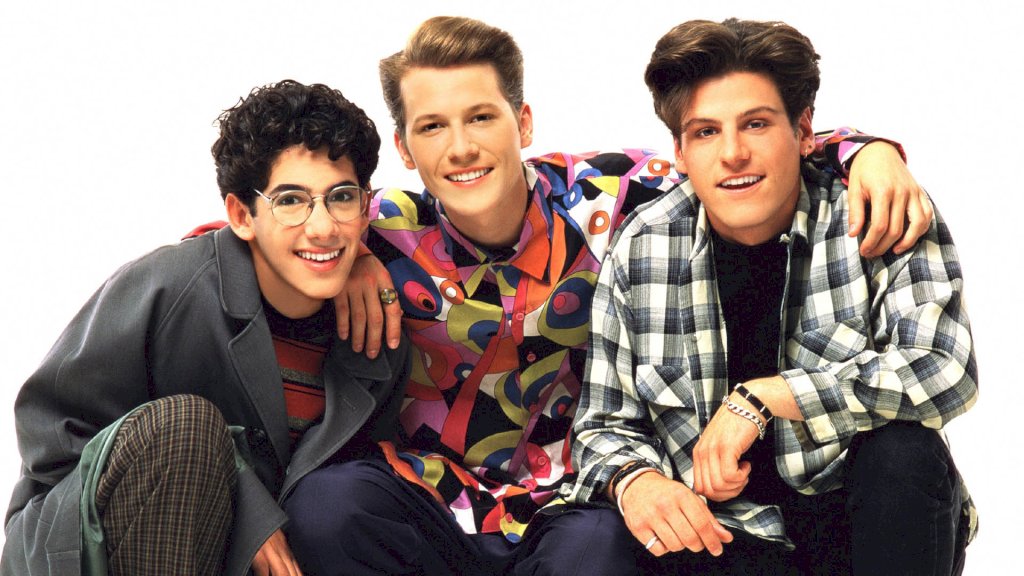In the early 1990s, amidst a landscape of teen-oriented television shows, one series stood out for its irreverent humor, offbeat characters, and innovative storytelling. "Parker Lewis Can't Lose," which aired from 1990 to 1993, wasn't just another teen sitcom. It was a groundbreaking show that combined clever writing, memorable characters, and a unique visual style to create a cult classic that continues to resonate with viewers today. In this article, we'll explore the enduring appeal and cultural significance of "Parker Lewis Can't Lose."

The Premise and Concept

"Parker Lewis Can't Lose" was created by Clyde Phillips and Lon Diamond and centered around the life of Parker Lewis, portrayed by Corin Nemec. Parker, along with his close-knit group of friends - Jerry Steiner (Troy W. Slaten) and Mikey Randall (Billy Jayne) - navigated the ups and downs of high school life at Santo Domingo High. The twist? Parker's uncanny ability to "not lose," often pulling off outrageous schemes to outsmart his nemesis, Principal Musso (Melanie Chartoff).
The show's central concept was a clever play on the idea of the all-American teenager who seemingly has it all together. Parker's confidence, resourcefulness, and charisma were larger than life, making him an iconic character for a generation of viewers.
Breaking the Fourth Wall: A Unique Narrative Style

What set "Parker Lewis Can't Lose" apart from other teen sitcoms was its innovative narrative style. The show frequently broke the fourth wall, with characters speaking directly to the audience and acknowledging the artificiality of the television medium. This self-awareness lent the series a postmodern edge that was uncommon at the time.
Parker's ability to pause and manipulate time (referred to as "Kube") added another layer of narrative complexity. This device allowed for creative storytelling, surreal dream sequences, and visually inventive sequences that became hallmarks of the show. The willingness to experiment with storytelling techniques endeared "Parker Lewis Can't Lose" to viewers and made it an unforgettable part of '90s television.
Unconventional Characters and Relationships

The characters of "Parker Lewis Can't Lose" were far from typical high school archetypes. Parker himself was a charismatic non-conformist with a love for quirky T-shirts and a penchant for seeing the world in a unique way. His best friend, Jerry, was an eccentric genius with a penchant for inventing outlandish gadgets. Mikey, the third member of the trio, was a loyal friend with a penchant for action.
The show also subverted the traditional dynamics of high school life. Principal Musso, typically the antagonist, had a complex and often humorous relationship with Parker, sometimes begrudgingly acknowledging his ingenuity. Moreover, the romantic subplot between Parker and his crush, Annie Sloan (Jennifer Guthrie), was a central element of the series, marked by humor, misunderstandings, and genuine emotion.
The Humor and Social Commentary

"Parker Lewis Can't Lose" was known for its witty and offbeat humor. The show frequently satirized high school life and teen culture of the early '90s, with references to fashion, music, and pop culture. Parker and his friends often found themselves in bizarre and hilarious situations, but their unwavering friendship and quick thinking helped them prevail.
Beyond the humor, the series occasionally delved into deeper themes, touching on issues like the challenges of growing up, the importance of individuality, and the absurdity of authority figures. It didn't shy away from social commentary, providing a relatable and entertaining platform for young viewers to explore these topics.
The Legacy and Influence of "Parker Lewis Can't Lose"

Despite its relatively short run, "Parker Lewis Can't Lose" left an indelible mark on television. The series cultivated a dedicated fan base, known as "The Parker Lewis Club," and has been remembered fondly by viewers who grew up in the '90s. Its influence can be seen in subsequent teen-oriented shows that embraced self-awareness, meta-humor, and unconventional narrative styles.
The show's unique visual language, including its use of slow-motion, creative editing, and visual gags, has also left a lasting impact on television and film. It paved the way for future shows to experiment with storytelling techniques and engage with audiences in new and innovative ways.

The impact of "Parker Lewis Can't Lose" extends beyond its initial run. The show's innovative narrative techniques, including breaking the fourth wall and playing with time, have left an indelible mark on television and film. Its influence can be seen in subsequent series that embraced self-awareness, meta-humor, and unconventional storytelling, such as "Malcolm in the Middle" and "Scrubs."
Additionally, the series played a significant role in shaping the comedic sensibilities of its cast and crew. Corin Nemec, who portrayed Parker Lewis, continued to work in television and film, and the show's director, Bryan Spicer, went on to have a successful career in directing feature films and television episodes.
Conclusion

"Parker Lewis Can't Lose" was a trailblazing series that pushed the boundaries of teen television in the early '90s. Its unforgettable characters, innovative narrative style, and witty humor made it a standout in a crowded field of teen-oriented shows. The show's willingness to break the fourth wall and its unique visual style set it apart from its contemporaries, earning it a special place in the hearts of viewers.
While "Parker Lewis Can't Lose" may not have enjoyed the same longevity as some other '90s classics, its legacy endures. It remains a testament to the creative possibilities of television and the enduring appeal of stories that capture the spirit of adolescence in unconventional ways. For those who fondly remember the show, Parker Lewis will always be the guy who "can't lose" and who continues to win over new fans with each passing generation.

